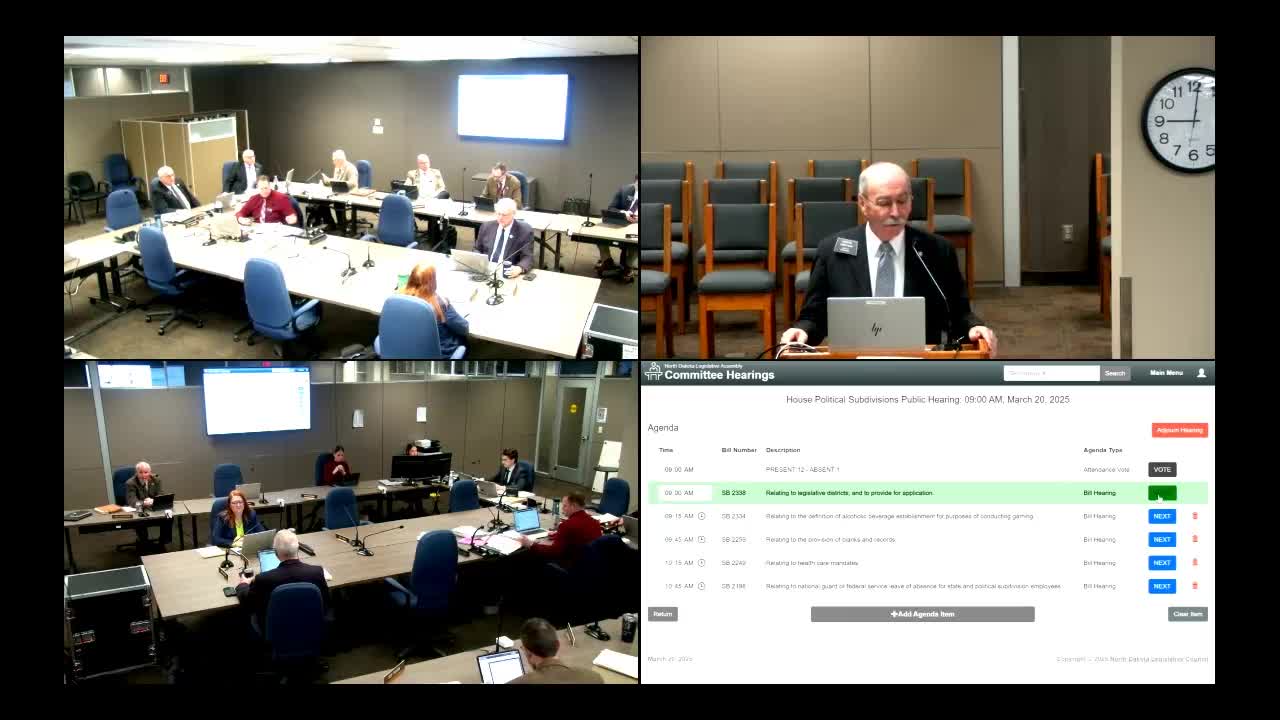Article not found
This article is no longer available. But don't worry—we've gathered other articles that discuss the same topic.
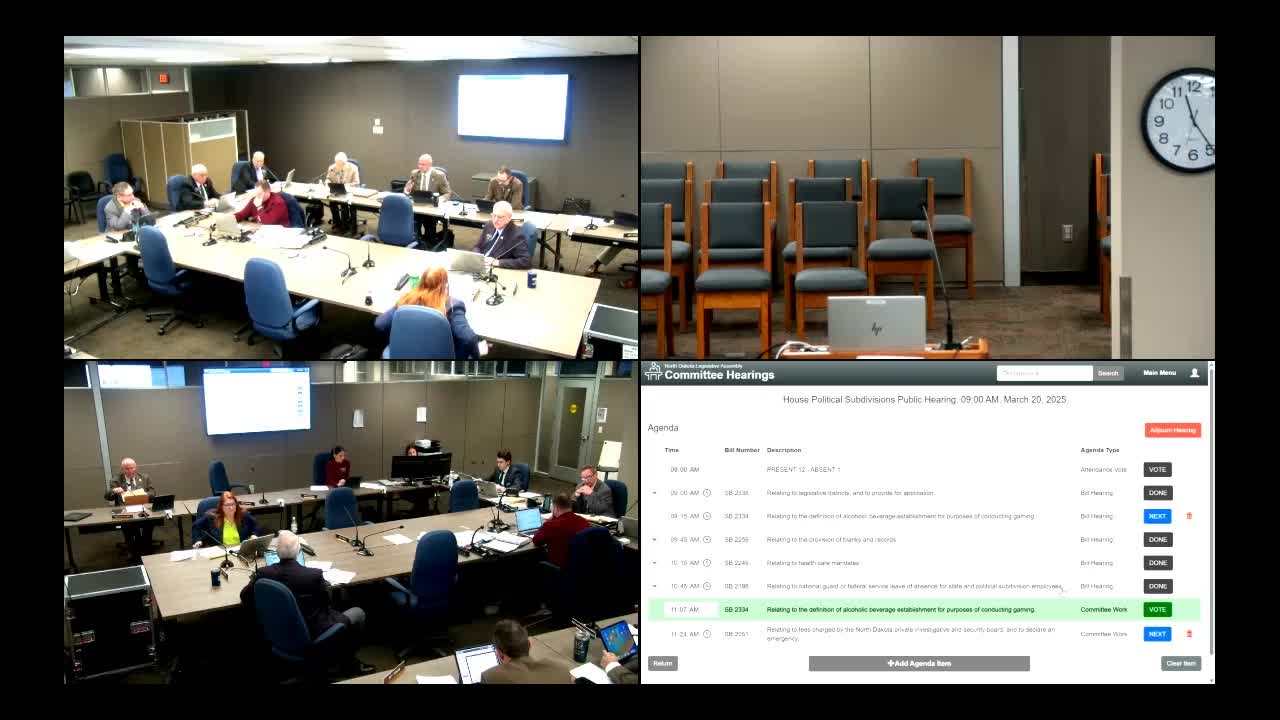
Committee Orders Performance Audit of Private Investigators and Security Board; Amendment Passes
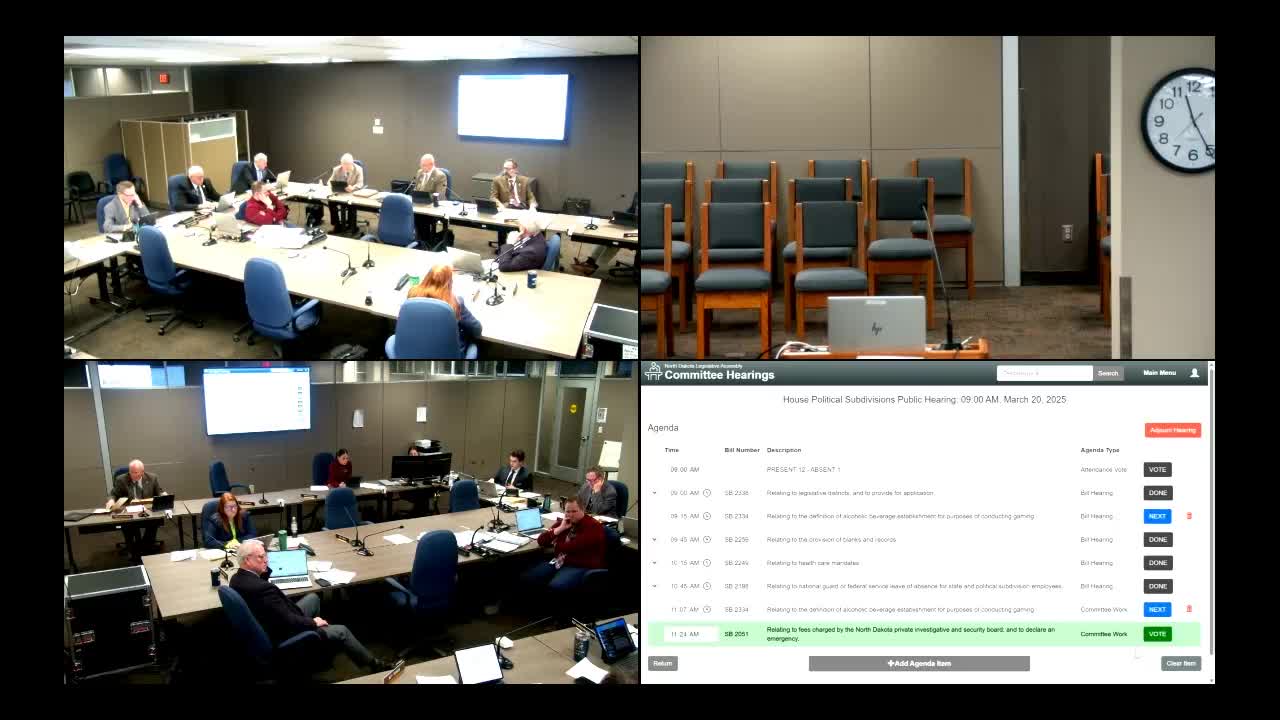
Committee Approves Waiver of 90-Day Waiting Period for State Military Leave; Emergency Clause Added
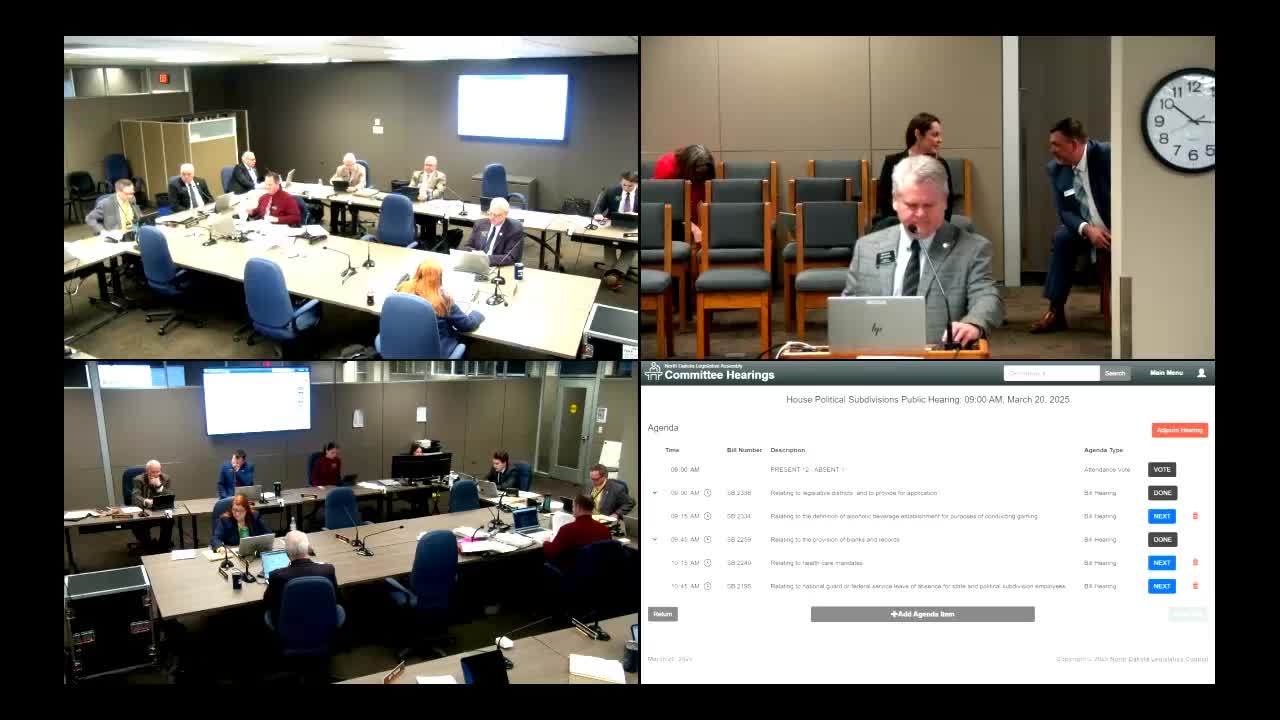
Committee Approves Study of Health-Care Mandates After Industry and Business Groups Urge Review
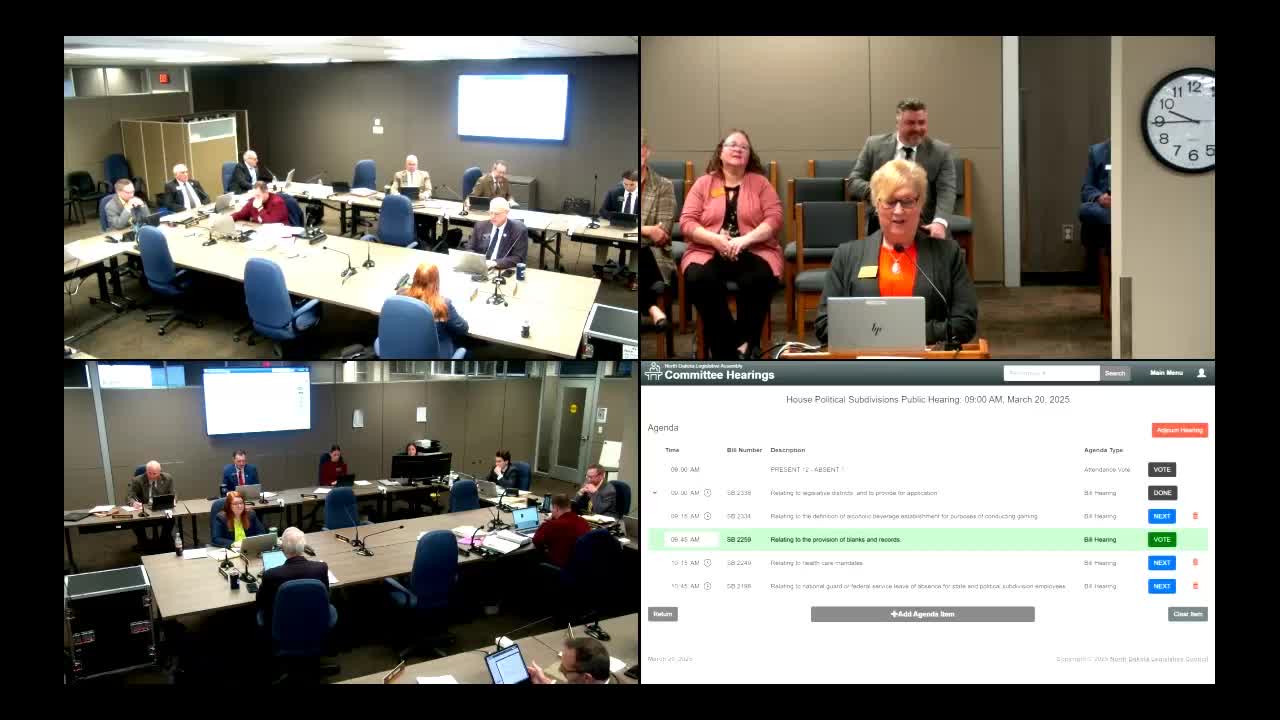
Recorders Testify in Support of Repeal of Century Code Provision Requiring Public Forms; Committee Gives Due Pass
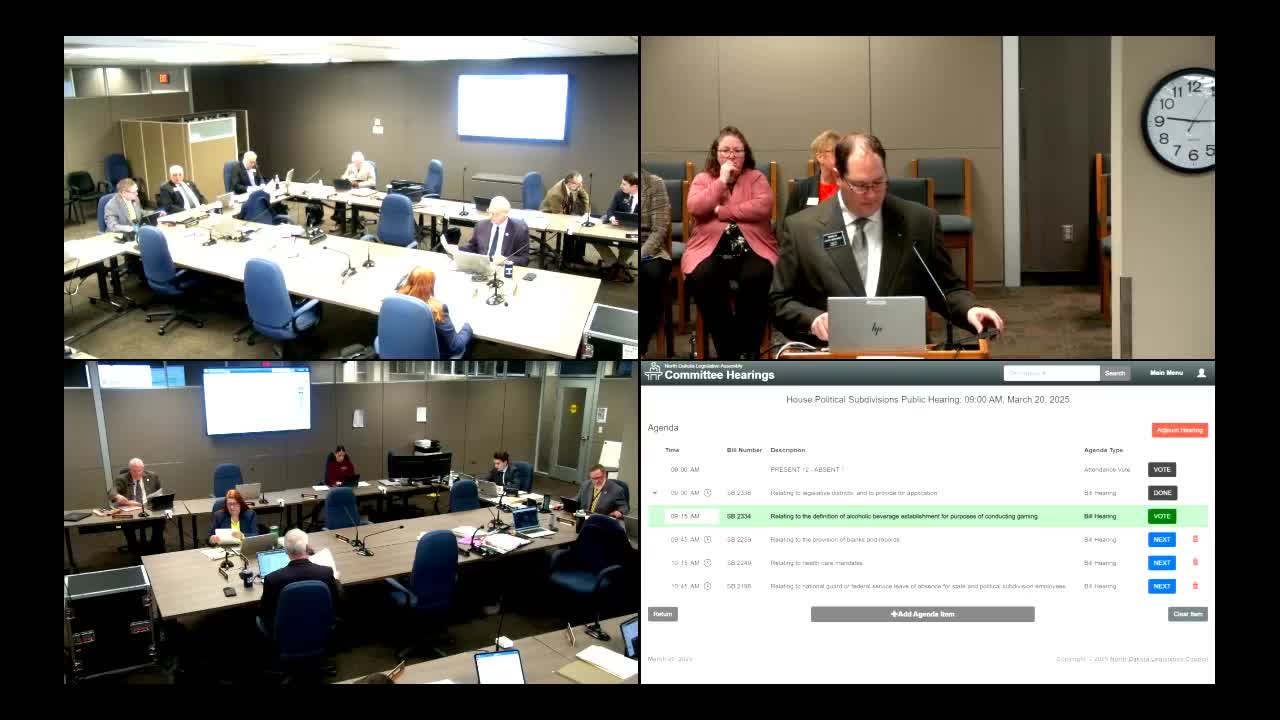
Committee Hears Bill to Allow Taprooms to Host Charitable Gaming; Decision Deferred Pending Amendment
